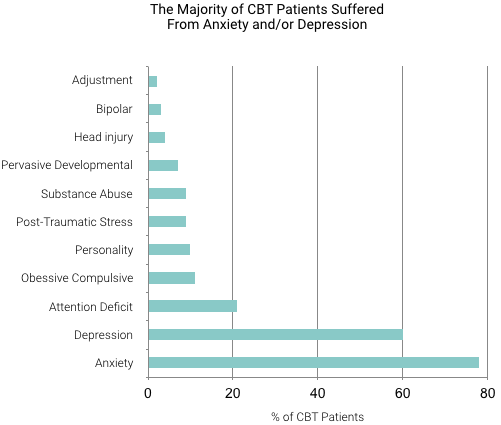CBT Therapist
Clinicians at our clinic identified the need for a Cognitive Behavioural Therapist (CBT) for those with uncomplicated depression and/or anxiety. These students were not ill enough to require a psychiatrist but were in need of treatment. The Specialist Services Committee funded a full time in-clinic CBT therapist for 18 months. Our CBT therapist worked with 127 patients in the first year to help them develop and practice effective thought patterns to alleviate illness. Both students and health providers appreciated this service. Having the therapist working in the clinic facilitated interaction between the therapist and family doctors. Ninety-five percent of referred students followed through with therapy as opposed to 52% in a study of students seeking therapy off campus.
For more information about CBT therapists check out our webinars.

Quick stats on our CBT patients in the first year:
- 58% of patients (n = 127) had more than one diagnosis
- 22% of patients (n = 127) were on 2 or more medications
- 94% of patients surveyed (n = 36) found their sessions helpful (somewhat or very)
